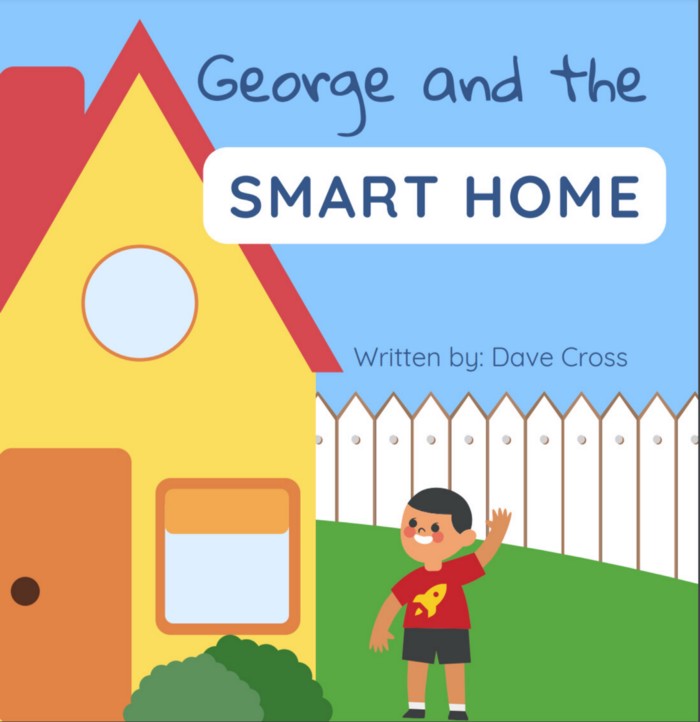‘Okay Google. Where is Antarctica?”
Children can now get answers to all their questions using smart speakers and digital voice assistants.
A few years ago, children would run to their parents or grandparents to answer their questions. But with the ascendence of voice assistants to the mainstream in recent years, many children rely more on technology than humans.
Is this a good idea?
How does it impact the children?
When children interact with people, it helps them be more thoughtful, creative, and imaginative.
When they use artificial intelligence instead, several issues come into the foreground. These include access to age-inappropriate content and increasing the possibility of being rude or unpleasant, affecting how they treat others.
As mentioned, technology has both pros and cons. There are benefits to children using these devices, including improving diction, communication, social skills, and gaining information without bothering their parents.
Many families find that smart speakers like Amazon Echo and Google Home are useful. They use them for several functions, ranging from answering questions to setting the thermostat. Research shows that up to nine out of ten children between the ages of four and eleven in the US are regularly using smart speakers — often without parental guidance and control. So, what is the best approach for a parent to take?
Children up to seven years old can find it challenging to differentiate between humans and devices, and this can lead to one of the biggest dangers. If the device fulfils their requests through rude behaviour, children may behave similarly to other humans.
Do Parents Think Smart Devices Should Encourage Polite Conversations?
Most parents consider it essential that smart devices should encourage polite conversations as a part of nurturing good habits in children. The Campaign for a Commercial-Free Childhood or CCFA is a US coalition of concerned parents, healthcare professionals, and educators. Recently, CCFA protested against Amazon Echo Dot Kids Edition, stating that it may affect children’s wellbeing. Because of this, they requested parents avoid buying Amazon Echo.
However, in reality, these smart devices have improved a lot and focus on encouraging polite conversations with children. It is all about how parents use and present these devices to their children, as these factors can influence them a lot.
But in simple terms, parents wish these devices to encourage politeness in their children. At the same time, they want their kids to understand the difference between artificial intelligence and humans while using these technological innovations.
Do Parents Think Their Children are Less Polite While Using Smart Speakers?
Many parents have seen their children behave rudely to smart speakers. Several parents have expressed their concerns through social media, blog posts and forums like Mumsnet. They fear these behaviours can impact their kids when they grow up.
A report published in Child Wise reached the conclusion that children who behave rudely to smart devices might be aggressive while they grow up, especially while dealing with other humans. It is, therefore, preferable if children use polite words while interacting with both humans and smart devices.
What Approaches Have Been Taken By Tech Companies to Address the Problem?
With interventions and rising concerns addressed by parents and health professionals, some tech companies have brought changes to virtual assistants and smart speakers.
The parental control features available in Alexa focus on training kids to be more polite. Amazon brands it as Magic Word, where the focus is on bringing positive enforcement. However, there is no penalty if children don’t speak politely. Available on Amazon Echo, this tool has added features like setting bedtimes, switching off devices, and blocking songs with explicit lyrics.
When it comes to Google Home, it has brought in a new feature called Pretty Please. Here, Google will perform an action only when children use, please. For instance, “Okay, Google. Please set the timer for 15 minutes.”
You can enable this feature through the Google Family Link, where you can find the settings for Home and Assistant. You can set these new standards for devices of your preference. Also, once you use it and figure things out, there will be no more issues in setting it up again.
These tools and their approaches are highly beneficial for kids and parents. As of now, these devices only offer basic features and limited replies. But with time, there could be technological changes that encourage children to have much more efficient and polite interactions.
George and the Smart Home
It was thinking about issues like this which led me to write my first children’s book — George and the Smart Home. In the book, George is a young boy who has problems getting the smart speakers in his house to do what he wants until he learns to be polite to them.
It is available now, as a paperback and a Kindle book, from Amazon.
Buy it from: AU / BR / CA / DE / ES / FR / IN / IT / JP / MX / NL / UK / US

I pondered about this. Sure, at first glance, this looks like a good idea. But do we really want (US) tech giants dictate what is polite and what isn’t? Do we want a similar situation as we have with Facebook et al. who decide what is “appropriate context” and what/who should be banned, using unknown algorithms, and sketchy review process?
OTOH, maybe kids should learn to program in INTERCAL, where you need the right amount of “PLEASE” statements in your program, otherwise the compiler will refuse to compile your program for rudeness. (Too many PLEASE statements, and the compiler won’t accept your program for too much groveling).